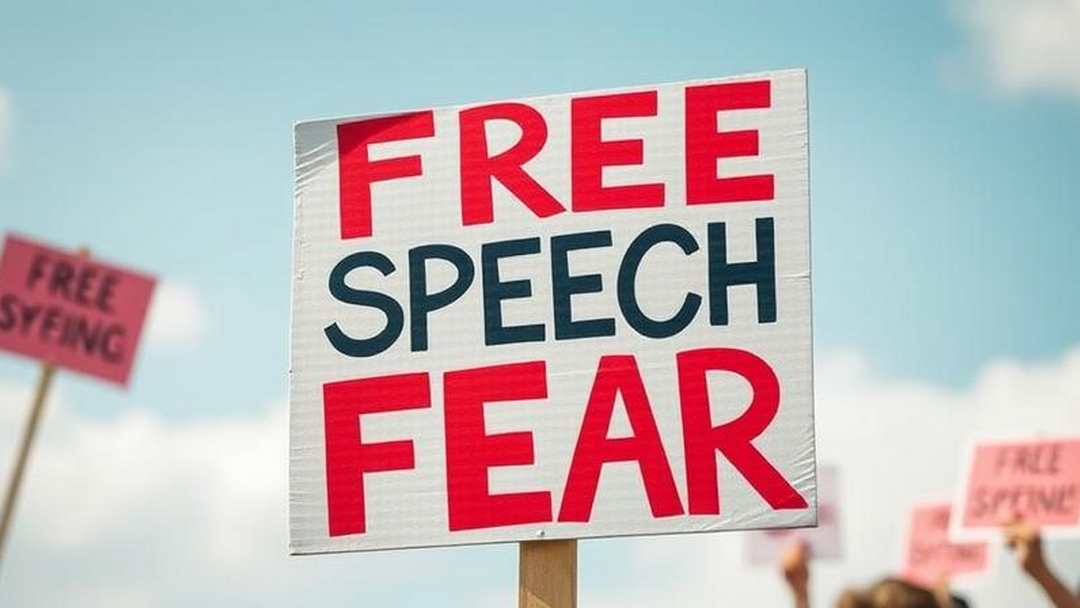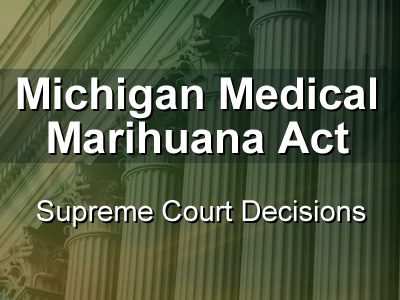Michigan Supreme Court Vacates Court of Appeals Ruling, Temporarily Preserves State Anti-Terror Statute
If you are charged with a crime you’re part of the State of Michigan family now. Call us – Because you don’t want to be a part of that family.
Komorn Law (248) 357-2550
On March 28, 2025, the Michigan Supreme Court issued a consequential order in People v. Kvasnicka, directing the Court of Appeals to reconsider its ruling that Michigan’s anti-terrorism statute—MCL 750.543m—violates the First Amendment. The order raises profound questions about the boundaries of protected speech and the state’s power to criminalize communications that may be perceived as threatening.
At Komorn Law, we believe these questions lie at the heart of a constitutional democracy. The First Amendment is not optional—it’s essential. Our firm has long stood as a bulwark against the encroachment of vague and overly broad criminal statutes that chill free expression under the guise of public safety.
The Legal Background
The case centers around MCL 750.543m, Michigan’s anti-terrorism statute, which criminalizes the making of threats and false threats of terrorism. The statute came under fire when the Michigan Court of Appeals found it unconstitutional for failing to require proof that a defendant subjectively knew their statements could be interpreted as threats of violence.
This reasoning echoed the U.S. Supreme Court’s decision in Counterman v. Colorado, 600 U.S. 66 (2023), which held that true-threat prosecutions must prove that the speaker had a culpable mental state—such as recklessness—about how their words would be perceived.
Rather than affirming or reversing that ruling outright, the Michigan Supreme Court vacated the Court of Appeals’ judgment and sent the case back for a more nuanced analysis. The Court directed the lower court to re-examine the statute in light of:
- MCL 750.543z, which bars prosecution of conduct “presumptively protected” by the First Amendment;
- The constitutional-doubt canon, a legal doctrine instructing courts to interpret statutes in a way that avoids constitutional conflict;
- The possibility of adopting a limiting construction to save the statute from invalidation; and
- Whether the trial court’s dismissal of the case without prejudice was procedurally improper while an appeal remained pending.
This remand opens the door for Michigan’s judiciary to refine the balance between public safety and individual liberty—especially where political speech, hyperbole, or artistic expression may be misconstrued as threatening.
The State’s Position
Attorney General Dana Nessel, who submitted an amicus brief supporting the Wayne County Prosecutor, celebrated the high court’s ruling as a preservation of an “important public safety tool.” Her office argued that the statute already requires proof of intent to intimidate or coerce, thereby satisfying constitutional standards. But the Supreme Court did not endorse that view outright—leaving the Court of Appeals with a mandate to dig deeper.
Free speech isn’t free if fear of prosecution suppresses lawful expression.
Why This Matters
Free speech isn’t free if fear of prosecution suppresses lawful expression. Vague laws that do not distinguish between actual threats and controversial, political, or even offensive speech risk turning our criminal courts into censors. This case—while still developing—has the potential to shape how Michigan protects or prosecutes speech going forward.
Komorn Law
At Komorn Law, we understand the stakes. We have represented clients whose words were taken out of context, misunderstood, or weaponized by the state under overbroad statutes. We fight to ensure that criminal charges do not become a substitute for political disagreement or public discomfort.
If you or someone you know is facing prosecution for speech-related conduct—whether online or off—we are here to defend your rights with constitutional precision and fearless advocacy.
See links and info below to court cases and laws here
Links
(Held that “true threats” prosecutions require proof that the speaker was at least reckless regarding whether their statements would be interpreted as threatening.)
(Defines criminal penalties for threats or false threats of terrorism in Michigan.)
(Prohibits prosecution or seizure for conduct presumptively protected under the First Amendment.)
(Applies the constitutional-doubt canon: statutes should be interpreted to avoid constitutional conflicts.)
(Addresses how courts may apply limiting constructions to save statutes from constitutional invalidation.)
(Permits courts to narrowly construe statutes to avoid infringing on constitutional rights.)
(Discusses abuse of discretion when trial courts act on matters under interlocutory appeal.)
More Articles

Criminal Law FAQs – Traffic Offenses
Michigan Criminal Laws FAQs Traffic OffensesAccording to Michigan State Law (Michigan Compiled Laws - MCL), Traffic...

Criminal Law FAQs – Drunk and Disorderly
Michigan Criminal Laws FAQs Drunk and DisorderlyAccording to Michigan State Law (Michigan Compiled Laws - MCL), there...

Criminal Law FAQs – Probation Violations
Michigan Criminal Laws FAQs Theft CrimesAccording to Michigan State Law (Michigan Compiled Laws - MCL), a Probation...

Michigan lawmakers want to revive “junk science” roadside drug testing
The Roadside Drug Test...AgainHouse bills 4390 and 4391The proposed House bills 4390 and 4391 would enable law...
More
Michigan Supreme Court Gives OK to Phones in Courts
The Michigan Supreme Court says the public can bring laptops, tablets and phones into local courthouses.The public can now bring cell phone, tablets and laptops into Michigan courthouses under a groundbreaking policy announced Wednesday by the state Supreme Court. The...
The Michigan Supreme Court, Local Control and Medical Marijuana
Do cities and townships have the ability to restrict where caregivers grow medical marijuana? Over the course of the legalization of Medical and Recreational marijuana many have debated about whether control over dispensaries should be at the local or state level....
Michigan Supreme Court amendment delays the implementation of a rule amendment
The Michigan Supreme Court issued an order that delays the implementation of a rule amendment that would have impacted law firm advertising. On Aug. 30, 2018 the court stated that it would defer the amendment of MRPC Rule 7.2 that was scheduled to take effect Sept. 1...
The Michigan Supreme Court has ruled they have the right to ban guns
July 27, 2018 - The Michigan Supreme Court has ruled that the Ann Arbor and Clio school districts have a right to ban guns from their schools In a very much watched case that deals a blow to gun rights advocates who argued state law prohibits schools from...
Michigan Supreme Court overturns decision in case it heard at Detroit’s Cass Tech
The Michigan Supreme Court has reversed a state appeals court decision, issuing a ruling Wednesday that a single photo identification of a man suspected of robbing and shooting another man at gunpoint in Detroit wasn't sufficient. It's a case that was argued...
MICHIGAN SUPREME COURT – Sentencing Guidelines Unconstitutional
LANSING, MI 7/30/15 — In a decision that could have a far-reaching impact on current and future cases going through the court system, the Michigan Supreme Court ruled Wednesday that the state’s sentencing guidelines that mandate prison terms are unconstitutional, and...















